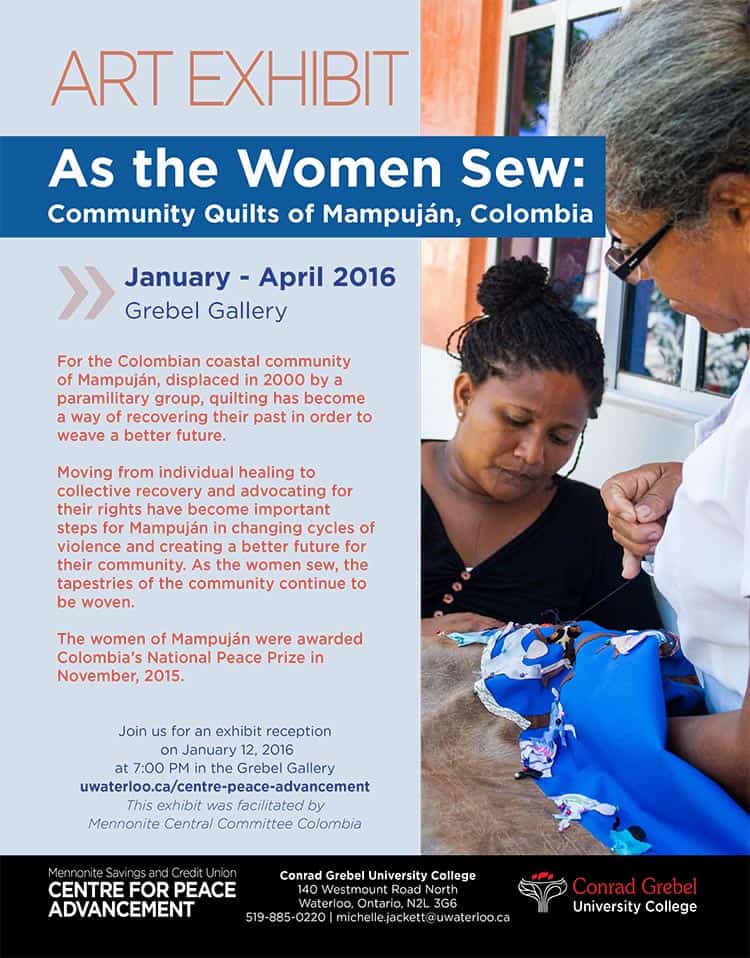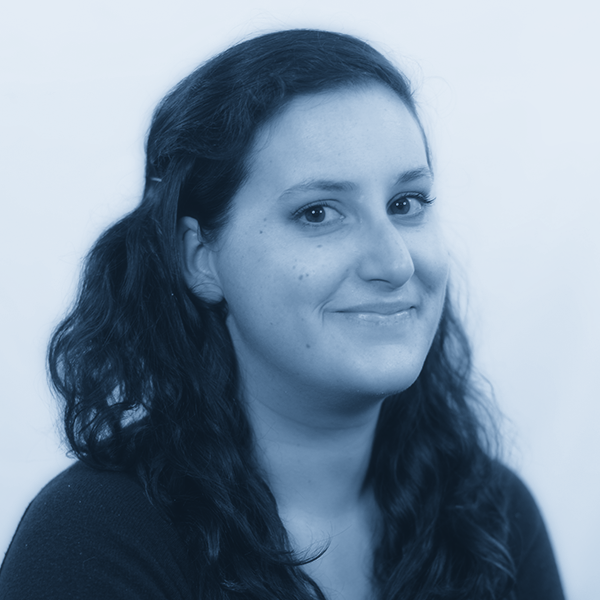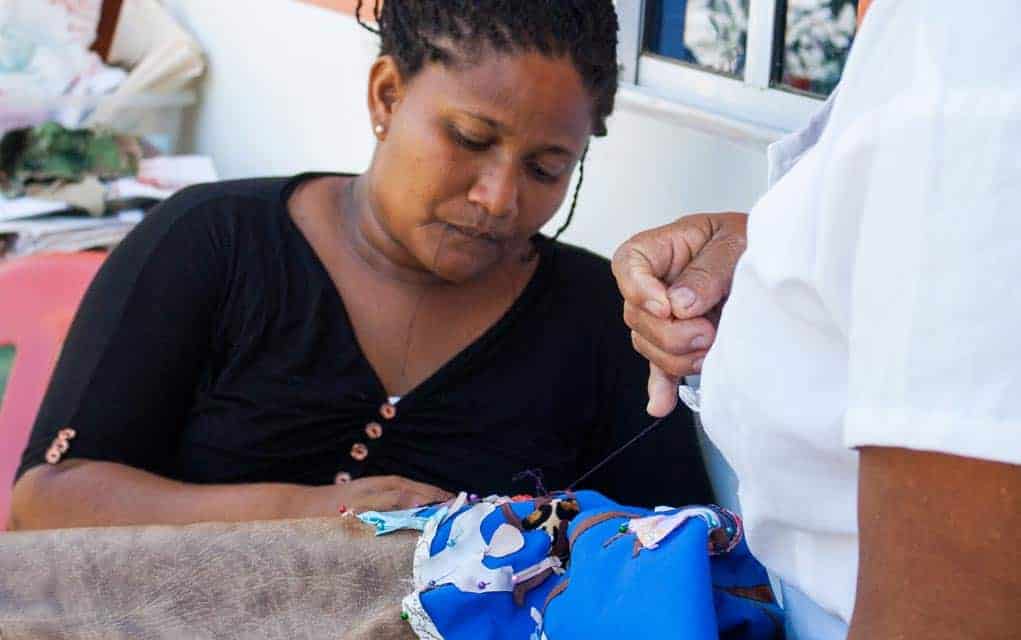This isn’t your grandma’s quilt.
Launched at UW’s Conrad Grebel University College this week, the As the Women Sew: Community Quilts of Mamupján, Colombia exhibit showcases four quilts by a group of women who’ve found healing by telling their stories of displacement through the art of quilting.
The women were part of Mamupján, a Colombian community that was displaced by a paramilitary group in 2000.
Paul Heidebrecht, director of the Mennonite Savings and Credit Union Centre for Peace Advancement, says they were initially encouraged to quilt as a way of gathering together and processing the trauma of this experience of displacement.
“That process of creating these quilts over a decade ago enabled the community to gather together to process that experience collectively as much as the women who created the quilts to tell their story and begin to move toward healing. And also in the course of doing that beginning to find their voice, not just to be able to tell their stories to each other, but also to authorities and communities beyond themselves and Colombia and begin to work for a better future for their community,” Heidebrecht said.
The group of women were collectively awarded the Colombian National Peace Prize last year for their contributions through quilting.
Each semester the gallery hosts a different art exhibit intended to help the community reflect on what it means to advance peace in the world, while also recording the stories of peacemaking around the world. It’s ongoing work, he says.
“The gallery itself is in the heart of what’s still a relatively new centre for peace advancement. It opened in June of 2014 and one of the things we’re committed to doing in the centre, in addition to research and in addition to incubating new peace related startups is community engagement, so the gallery is one way of doing that,” Heidebrecht said.
The idea for the quilt exhibit was born out of a conversation with Mennonite Central Committee last year. A MCC staffer who’s based in Bogotá, Colombia happened to be at Conrad Grebel for unrelated meetings and was inspired by the gallery space.
“We have a team of people and when we met last and we were considering different options, we all got quite excited about the prospect of curating this exhibit, given some other activities that the college was facilitating this semester. We have an annual lecture series that this year has a quilting theme,” Heidebrecht notes.
He says with all of their gallery exhibits they try to find ways to reach specific audiences who wouldn’t ordinarily have reason to come to Conrad Grebel. They’ve reached out to the Colombian Canadian community in Kitchener-Waterloo, and to others with connections in Colombia. They also connected with the local art community.
“It’s purposeful art, but nonetheless it’s also something that people can come and experience and receive as they would any other art exhibit…When people think quilts and they think Mennonite college they aren’t going to be thinking about what they’ll experience when they come to this exhibit. These aren’t purely aesthetic works. A couple of the quilts have disturbing images on them, capturing the disturbing experience that’s been woven into this tapestry. It’s a different take on Mennonite quilts that’s for sure,” Heidebrecht said.
And as we prepare to welcome Syrian refugees here in Waterloo Region this exhibit can help people begin to empathize and grapple with the nature of their experience and recognize the trauma they too will have gone through.
This marks the first time the quilts have been shown in such a way.
“Typically they’ve been hung outside homes in a community when they gathered together to discuss things. They’ve served a variety of other purposes, but they haven’t been gathered and arranged in this way. The women were eager to hear of this opportunity. This will be an ongoing process as we let them know the stories and the conversations that they’ve prompted in North America,” Heidebrecht said.
Located in the Grebel Gallery at the MSCU Centre for Peace Advancement, the quilts along with 10 photos by MCC worker Anna Vogt documenting the lives of these women will be on display until April 23. Admission is free.










